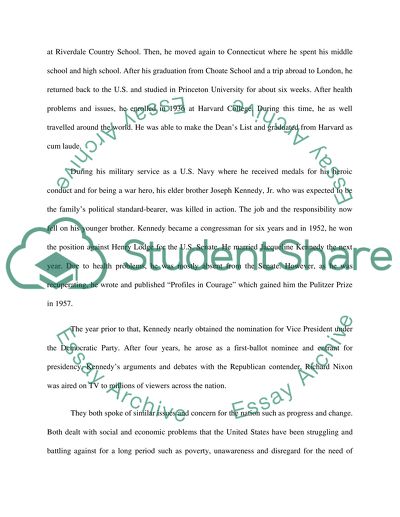Cite this document
(“History: John F. Kennedy Research Paper Example | Topics and Well Written Essays - 1500 words”, n.d.)
Retrieved from https://studentshare.org/history/1436149-john-f-kennedy
Retrieved from https://studentshare.org/history/1436149-john-f-kennedy
(History: John F. Kennedy Research Paper Example | Topics and Well Written Essays - 1500 Words)
https://studentshare.org/history/1436149-john-f-kennedy.
https://studentshare.org/history/1436149-john-f-kennedy.
“History: John F. Kennedy Research Paper Example | Topics and Well Written Essays - 1500 Words”, n.d. https://studentshare.org/history/1436149-john-f-kennedy.


